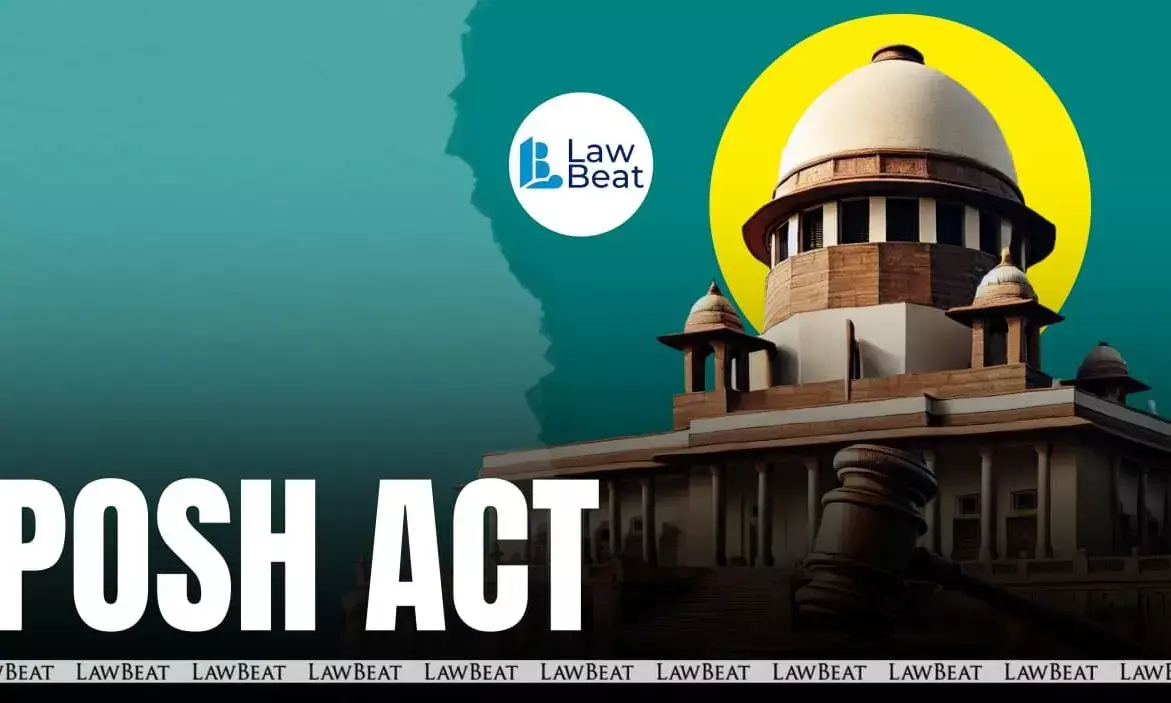"Entering political party not a job", SC agrees with Kerala HC decision excluding Women in Politics, Media from POSH Act

Supreme Court holds Internal Committee (IC) at aggrieved woman’s workplace can inquire into complaint against employee of different department
The Supreme Court has refused an Special Leave Petition (SLP) challenging a 2022 judgment of the Kerala High Court which, while partly affirmed the importance of the Sexual Harassment of Women at Workplace (Prevention, Prohibition and Redressal) Act, 2013 (POSH Act), and adopted what the petitioners described as a “narrow and restrictive” interpretation of the law’s scope.
According to the petitioners, the verdict has effectively excluded vast categories of women engaged in non-traditional, informal, or freelance work arrangements from the protection of the Act; particularly in the film, media, and political sectors.
A bench of CJI BR Gavai, Justice K Vinod Chandran and Justice AS Chandurkar told the petitioner that politics was not a job and entering a political party could not be equated to getting a job. "They are not paid a salary", CJI said.
The petition filed through AoR Sriram P. argued that the POSH Act was deliberately enacted with broad definitions of “employer,” “employee,” and “workplace” to safeguard women against workplace harassment across formal and informal spaces, pursuant to the Supreme Court’s landmark Vishaka v. State of Rajasthan (1997) and Medha Kotwal Lele v. Union of India (2013) rulings.
However, the Kerala High Court, while recognizing the importance of preventive mechanisms, limited the law’s applicability in three key respects:
1. Internal Complaints Committees (ICCs) are mandatory only for individual film production units employing more than 10 persons, and not for powerful industry associations like AMMA or FEFKA, which regulate conditions across the film industry.
2. Political parties, in the absence of a conventional employer-employee relationship, are not obliged to constitute ICCs.
3. Women working in establishments with fewer than 10 employees must rely solely on Local Complaints Committees, with no obligation on sectoral bodies to establish institutional redressal mechanisms.
The petitioner warned that this restrictive reading of the law leaves women in large, influential sectors; cinema, television, media, and politics, without effective remedies against workplace harassment. For women in politics, the vulnerability is acute. India has over 2,700 registered political parties, yet there is no uniform requirement for ICCs within party structures. While some parties like the CPI(M) have voluntarily set up ICCs, most rely on informal or ad hoc committees, leaving grassroots women political workers without meaningful recourse.
This is not the first time the petitioners have approached the Apex Court. They had earlier filed W.P.(C) No. 816 of 2024, which was disposed of with liberty to make a representation to the Election Commission of India. With no response forthcoming, they filed W.P.(C) No. 695 of 2025, which was later withdrawn with liberty to directly challenge the Kerala High Court’s 2022 judgment.
Last month, the Apex Court had refused said writ petition seeking urgent directions to bring political parties within the ambit of the Sexual Harassment of Women at Workplace (Prevention, Prohibition and Redressal) Act, 2013 (POSH Act). A CJI BR Gavai led bench had said the issue fell within the "Parliament's domain".
When Senior Advocate Rekha Gupta informed the bench that a similar petition was dismissed by the Kerala High Court, the top court suggested that an SLP may be filed against said dismissal. Agreeing to the same, the senior lawyer had requested to withdraw the instant petition. The petition had invoked Article 32 of the Constitution and alleges that the exclusion of women political workers from the protections of the POSH Act violates their fundamental rights under Articles 14, 15, 19 and 21.
The petition had invoked Article 32 of the Constitution and alleges that the exclusion of women political workers from the protections of the POSH Act violates their fundamental rights under Articles 14, 15, 19 and 21.
Case Title: Yogamaya MG v. State of Kerala & Ors.
Order Date: September 15, 2024
Bench: CJI Gavai, Justices Chandran and Chandurkar
